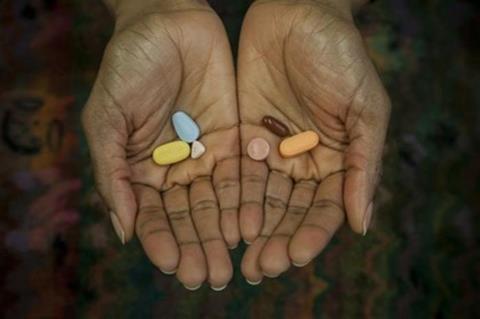The international community must protect global responses to HIV, tuberculosis (TB), and malaria to serve humanity’s collective interests, according to an opinion article published May 14, 2025, in the open-access journal PLOS Global Public Health by Gorik Ooms from the Institute of Tropical Medicine, Belgium, and colleagues.

Within days of starting his second term as President, Donald Trump ended most United States (US) contributions to global health. Global responses to HIV, TB and malaria are not the only programs affected but were particularly dependent on US support.
READ MORE: Proposed cuts to foreign aid could result in millions of HIV deaths, new modelling study estimates
READ MORE: WHO calls on Trump to reconsider order that USA will withdraw from the Organization
The US withdrawal from global health could result in 3 million additional HIV deaths and 10 million additional HIV infections, 107,000 additional malaria deaths and 15 million additional malaria infections, and 2 million additional TB deaths, all in 2025.
Global health security threats
HIV, TB and malaria are global health security threats that require international collective action. The Global Fund to fight AIDS, TB and Malaria (Global Fund) entered its replenishment cycle for 2027–2029, with a target of $18 billion. A failure of this replenishment would make it impossible for many countries to compensate for decreasing US funding and decreasing Global Fund support.
The abrupt end of most US funding for global health comes at a crucial moment for the fight against the three epidemics. For HIV, funding cuts are disrupting treatment and prevention, and increasing morbidity, mortality and infections especially among marginalized groups. The transmission of TB remains high due to insufficient access to treatment, urbanization and undernutrition. Control of malaria remains elusive due to emerging resistance to treatments, and insecticides, gaps in prevention, and limited access to healthcare.
Overhaul of governance
According to the authors, the reduction of US bilateral aid calls for re-prioritization and enhanced coordination of the global fights against HIV, TB and malaria. Currently, the Global Fund is uniquely positioned to undertake this endeavor, as it financially supports HIV, TB and malaria programs in most, if not all, countries affected by US spending cuts. This requires a successful replenishment, which seems improbable given uncertainty about the US position and considering the aid spending cuts announced by other high-income countries. Low- and middle-income countries need to step in, which necessitates an overhaul of the Global Fund governance.
The authors outline four action points. First, all countries, regardless of income level, should support the current replenishment of the Global Fund. Second, the replenishment mechanism should move toward agreed and fair assessed contributions, such as 0.01% of the annual gross domestic product of all countries. Third, the Global Fund should commit to overhauling its governance structures to promote equal representation among geographical constituencies. Fourth, the Global Fund should commit to adhere to the Lusaka Agenda, which captures consensus around five key shifts for the long-term evolution of global health initiatives and the wider health ecosystem.
Four key actions
As noted by the authors, these four actions would save essential elements of the global responses to HIV, TB and malaria and set a central and collaborative mechanism for global health security on a path toward the principles of global public investment.
Dr Gorik Ooms adds: “Richer countries still view global health cooperation primarily as aid, from them to poorer countries. They do not seem to realize how this cooperation also protects their own interests. We must not only find enough funding to sustain it; but also rethink how we work together. Through genuine international cooperation between equal partners.”
Co-author Dr Raffaella Ravinetto concludes: “It is not only a matter of keeping life-saving programs alive. It is also a matter of building and maintaining a solid ecosystem, encompassing health infrastructure, policies and human resources, to make quality health care feasible everywhere. Through solidarity we can serve common interests.”







No comments yet